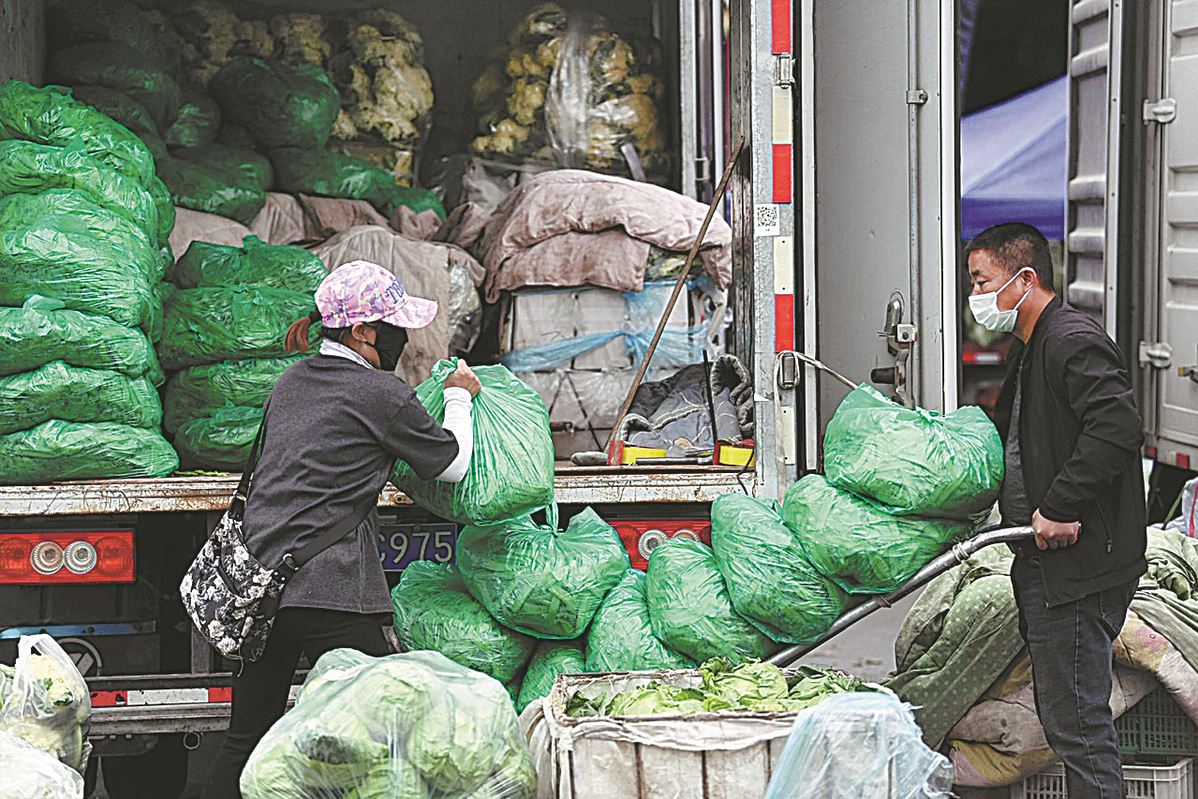Beijing unites to ensure supplies during COVID-19 outbreak


Measures guarantee residents access to food, medication
Li Jin, who lives in Beijing's Chaoyang district, resorted to panic buying on the night of April 24, when the municipal government announced that it had designated several residential communities as controlled zones due to a sudden outbreak of COVID-19.
"I live on the East Third Ring Road near some zones, and feared that my apartment building might soon be included in them. I rushed to a supermarket and bought three times as much food as I normally purchase," Li said.
"I wanted to buy a large freezer, but I abandoned this idea because there was no room for it at home."
However, Li quickly discovered that she needn't have bought so much food, as takeout orders and fresh vegetables could be delivered to her home as usual-they just took a little bit longer to arrive.
"I panic-bought because everyone was preparing for the worst scenario, where logistics services might be affected and there would not be enough food for sale or deliveries," she said.
"But I needn't have worried, because the entire city is still functioning well and the prices of daily produce such as vegetables, fruit, eggs, milk and flour have not been raised."
On the evening of April 24, many supermarkets stayed open longer to ensure that customers could buy everything they needed. Most outlets were crowded as people purchased daily necessities, with long lines forming outside.
Before and after the panic buying, the municipal government went to great lengths with wholesale markets and logistics companies to ensure supplies got through and that prices remained stable.
Faced with such a situation, it is not easy to keep a huge city with a population of more than 20 million functioning normally.
Local authorities, residential communities, e-commerce operators, delivery workers and supermarkets have all taken their responsibilities seriously and cooperated well to ensure the smooth operation of such a huge supply system.























